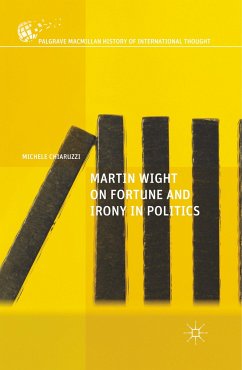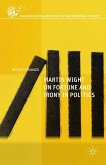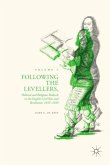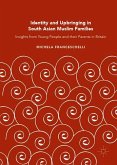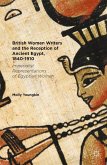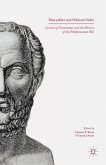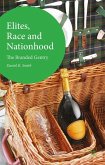Martin Wight was one of the most influential twentieth-century British thinkers who investigated on international politics and continues to inspire the English school of international relations. Containing a previously unpublished essay by Wight, this book brings this essay, "Fortune's Banter", to light.
Ian Hall, Griffith University
Obviously, this is a somewhat unusual project. It will be of interest to scholars in North America, Europe (especially the UK, but not just the UK - there is a considerable interest in Wight's work in Denmark, Italy, Turkey and elsewhere), as well as in Australia and NZ, and parts of East Asia. Professors will be interested, but also advanced graduate students and some undergraduates with a particular interest in IR theory and the English school, in particular. The most interest will come from political scientists, but historians of ideas (like David Armitage at Harvard, for example) are also interested in Wight's thought.
The work is original - this particular essay of Wight's (Fortune and Irony) has not be published before, except in Chiaruzzi's Italian translation. Chiaruzzi is one of the up-and-coming theorists in Italy, with a strong academic network beyond it, and his work on Wight, especially his 2008 book, is excellent. He's already edited an Italian edition of Wight's Three Traditions lectures (in 2011) and he has a reputation as someone who is a sensitive and perceptive interpreter of Wight's thinking. I have no doubt that he will do an excellent job of introducing this essay and that the book will find a receptive audience among IR theorists. It adds to various collections of Wight's unpublished writings that have seen the light of day since his untimely death in 1972 - Systems of States (1977), edited by Hedley Bull; International Theory (1990); and Four Seminal Thinkers (2006).
The structure and organisation of the book is very simple: an introduction from Chiaruzzi, presumably (given the total word length) of around 15,000 words, and then Wight's essay, which is about 10k, I expect. It would have been good to have had an English text of the introduction with the proposal, but given the strength of Chiaruzzi's earlier work on Wight, and given what I know about the original essay (in the Wightpapers in London), the subheadings of the introduction make sense to me in terms of organising the introduction. The book makes sense as a Palgrave Pivot, I think - it is the kind of thing that people will want to download or buy in hard copy to ensure their collection of Wight's work is as complete as it can be.
In short, I'm very supportive of this proposal. Wight was one of a handful of British thinkers about international relations in the twentieth century to establish an international reputation as a teacher and a scholar, and his work continues to fascinate many in International Relations. The 'Fortune and Irony' essay is one of Wight's best - showing his extraordinary knowledge of the political thought of ancient, medieval and modern Europe, and his capacity to cast light on contemporary international politics, especially its moral dilemmas.
Obviously, this is a somewhat unusual project. It will be of interest to scholars in North America, Europe (especially the UK, but not just the UK - there is a considerable interest in Wight's work in Denmark, Italy, Turkey and elsewhere), as well as in Australia and NZ, and parts of East Asia. Professors will be interested, but also advanced graduate students and some undergraduates with a particular interest in IR theory and the English school, in particular. The most interest will come from political scientists, but historians of ideas (like David Armitage at Harvard, for example) are also interested in Wight's thought.
The work is original - this particular essay of Wight's (Fortune and Irony) has not be published before, except in Chiaruzzi's Italian translation. Chiaruzzi is one of the up-and-coming theorists in Italy, with a strong academic network beyond it, and his work on Wight, especially his 2008 book, is excellent. He's already edited an Italian edition of Wight's Three Traditions lectures (in 2011) and he has a reputation as someone who is a sensitive and perceptive interpreter of Wight's thinking. I have no doubt that he will do an excellent job of introducing this essay and that the book will find a receptive audience among IR theorists. It adds to various collections of Wight's unpublished writings that have seen the light of day since his untimely death in 1972 - Systems of States (1977), edited by Hedley Bull; International Theory (1990); and Four Seminal Thinkers (2006).
The structure and organisation of the book is very simple: an introduction from Chiaruzzi, presumably (given the total word length) of around 15,000 words, and then Wight's essay, which is about 10k, I expect. It would have been good to have had an English text of the introduction with the proposal, but given the strength of Chiaruzzi's earlier work on Wight, and given what I know about the original essay (in the Wightpapers in London), the subheadings of the introduction make sense to me in terms of organising the introduction. The book makes sense as a Palgrave Pivot, I think - it is the kind of thing that people will want to download or buy in hard copy to ensure their collection of Wight's work is as complete as it can be.
In short, I'm very supportive of this proposal. Wight was one of a handful of British thinkers about international relations in the twentieth century to establish an international reputation as a teacher and a scholar, and his work continues to fascinate many in International Relations. The 'Fortune and Irony' essay is one of Wight's best - showing his extraordinary knowledge of the political thought of ancient, medieval and modern Europe, and his capacity to cast light on contemporary international politics, especially its moral dilemmas.

